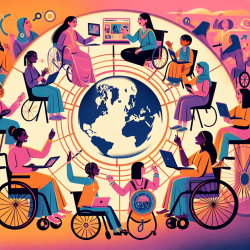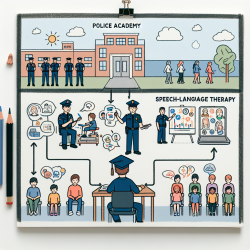As a practitioner working with autistic children, understanding the unique challenges faced by Indigenous communities is crucial. The research article "Reimagining Support for Autistic Indigenous Children in the United States: Addressing Under-Identification and Service Gaps" sheds light on these challenges and provides insights into improving services and support for this underserved population.
The Challenges of Under-Identification
Indigenous children in the United States, particularly in Texas, face significant barriers in accessing autism services. One of the primary issues is under-identification due to a lack of culturally competent diagnostic resources. This leads to a misrepresentation of data and limits the understanding of existing support systems within these communities.
The research highlights that variations in cultural identity, government trust, and disability identity further complicate data collection efforts. As a result, many Indigenous children with autism remain undiagnosed or receive delayed diagnoses, preventing them from accessing essential services early on.
Cultural Competence: A Key to Effective Support
To address these challenges, practitioners must develop cultural competence. Understanding the diverse cultural perspectives on autism within Indigenous communities is essential for crafting effective support strategies. For example, some Indigenous groups may not have a specific term for autism in their language, which can hinder diagnosis and communication about ASD-related behaviors.
Practitioners should engage with Indigenous communities to learn about their unique conceptualizations of health and disability. This involves respecting existing support systems and recognizing that a formal diagnosis can facilitate access to federal resources without imposing negative connotations.
The Importance of Data Sovereignty
A critical aspect of improving services for autistic Indigenous children is addressing data gaps while respecting data sovereignty. Indigenous communities have the right to govern and control the collection and use of their data. This empowers them to tailor interventions to their specific needs and ensures that data collection respects cultural values.
The research advocates for community-based participatory research methods that involve Indigenous communities directly in the research process. By doing so, practitioners can ensure that data collection is ethical and culturally sensitive.
A Roadmap for Improvement
The article outlines a comprehensive roadmap to enhance services for autistic Indigenous children:
- Establish an Indigenous-Led Taskforce: Create a task force dedicated to gathering comprehensive data on autism diagnosis and services for Indigenous populations.
- Culturally Sensitive Practices: Educate healthcare professionals on culturally sensitive practices to ensure respectful care delivery.
- Promote Telehealth: Use telehealth to overcome geographical barriers and improve access to healthcare services.
- Caretaker Support: Provide resources and information about available support services for caregivers of children with ASD symptoms.
The Path Forward
The journey towards equitable healthcare access for autistic Indigenous children requires collaboration between practitioners, policymakers, and Indigenous communities. By implementing culturally sensitive strategies and respecting data sovereignty, we can create a more inclusive environment where all children have the opportunity to thrive.
If you're interested in delving deeper into this topic, I encourage you to read the original research paper: Reimagining Support for Autistic Indigenous Children in the United States: Addressing Under-Identification and Service Gaps.










